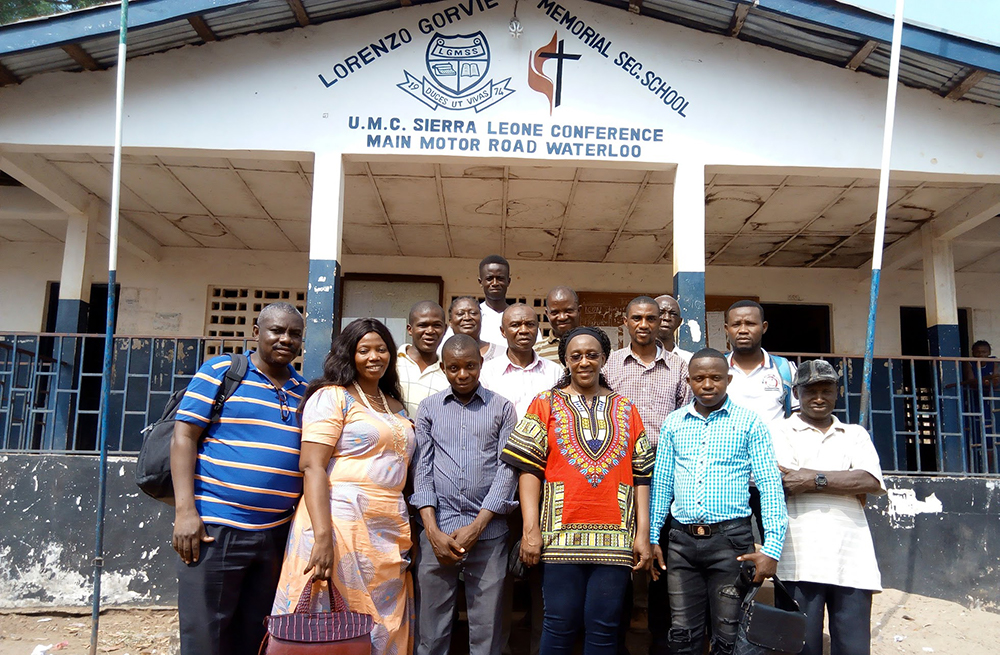
The theme for this year’s World Teachers’ Day was “Young Teachers: The Future of the Profession”. We congratulate all the young teachers around the world for their service to humanity and their communities. The questions we must ask are: Are we doing enough to attract young people into the noble profession that is teaching? Do we support them adequately once they join the profession?
Reports from various developing and developed country contexts suggest that fewer young people are joining the teaching profession. Other studies have shown that those who join will typically experience challenges in their early career, which often result in disillusionment. A report by Education International outlines some of these early career challenges as: a daunting initial encounter with one’s classes, discipline and classroom management, personal and institutional adjustments, teaching methods and strategies, and also working with learners with special needs. In Africa, these challenges are compounded by the growing school-age population and the strain it causes on teaching resources.
Other than the regular classroom-based challenges, both young and young-at-heart teachers have to grapple with the effects of the rapid developments in technology. The World Development Report 2019 suggests that there is need now, more than ever, for current jobs to be retooled into new forms, and that workers who bring emerging skills into their fields of expertise are likely to be in high demand. Support for early-career and other young teachers is imperative, with a focus on school-based mentorship and teacher-development programmes that prepare them for the work environment of the future.
The International Taskforce on Teachers for Education 2030 recommends that national teacher development policies include a provision for an induction period, when young teachers receive in-school support from mentors and peer networks. Providing young teachers with the right professional development experiences through collaborative lifelong learning is a priority for current and future school environments.
The Commonwealth of Learning (COL) has renewed its focus on school-based Teacher Professional Development (TPD) as a means to improving the quality of teaching and learning outcomes. Through its Teacher Futures model, COL supports ministries of education and other teacher education institutions to develop policies and frameworks that encourage the use of OERs and other technology-based resources to support exchange of knowledge on pedagogical practice.
Apart from eLearning, models that promote ‘bite-sized’ learning, like microlearning, are encouraged to enable ongoing in-school training as well as information exchange in national and cross-national communities of practice.
Moon and Villet observed that improved connectivity across the African region has implications for digital learning and other changes in the school environment. In an increasingly connected world, therefore, young teachers will most likely enter the profession while not only owning a device that might support technology-enabled learning but also with a more positive attitude towards technology-based learning experiences. A 2017 survey conducted by COL in Sierra Leone revealed that mobile technology was used by 55% of teachers and 70% of teacher educators in the institutions sampled. Over 90% of the teachers and teacher educators preferred to use mobile devices to access microlearning and eLearning resources as well as participate in online and messaging-based communities of practice.
COL’s Teacher Futures aims at working with teacher educators and mentors in realising better learning outcomes through learner-centred as well as inclusive pedagogies. In Kenya, for instance, COL has entered into a partnership with the Ministry of Education and the Kenya Institute of Special Education (KISE) to support a teacher professional development programme in inclusive education in some 20 schools in the initial phase.
Other than Sierra Leone and Kenya, COL’s Teacher Futures is currently at various stages of implementation in The Gambia, Kiribati, South Africa, Sri Lanka and Uganda. Other countries that have shown interest in the model include Ghana, Jamaica and Rwanda.
Teacher professional development programmes should aim not only at fostering lifelong collaborative learning but also imparting appropriate pedagogical knowledge and skills among young teachers to help them address the anxieties in early career as well as adapt to their changing work environment.
As we celebrate young teachers on World Teachers’ Day this year, it is important that we commit to providing opportunities for positive experiences in professional development from the onset of their career, as this will enhance their professionalism, identity and personal status.


